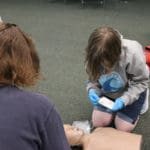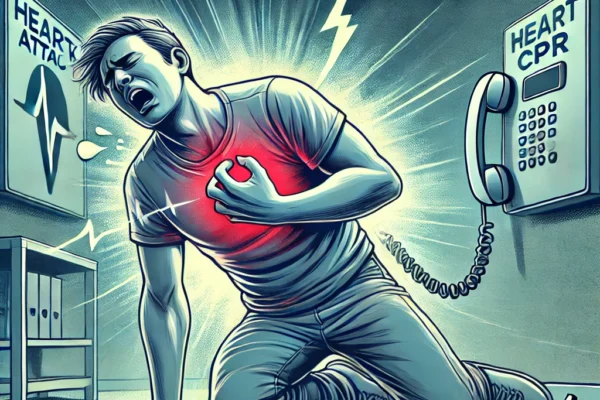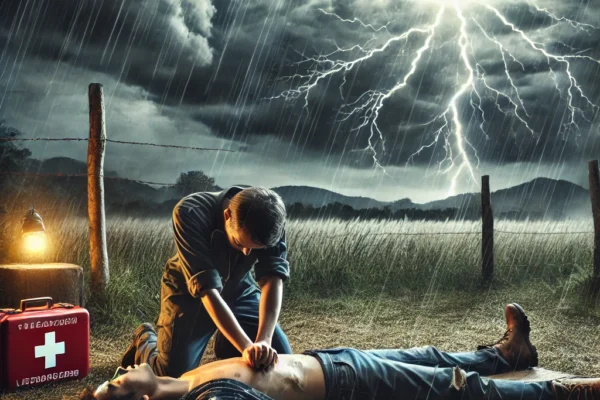September is National Preparedness Month, a perfect reminder to evaluate and update your emergency action plans (EAPs). Whether you’re an individual, a business owner, or part of a larger organization, being prepared for unexpected emergencies is crucial. One of the best ways to start building a robust EAP is by getting trained in CPR, First Aid, and AED usage. These skills are not only essential for responding to medical emergencies but also lay the groundwork for a comprehensive preparedness plan.
Why CPR, First Aid, and AED Training is Essential
Emergencies can happen anywhere, at any time, and often when you least expect them. Knowing how to respond quickly and effectively can make all the difference in saving a life. CPR (Cardiopulmonary Resuscitation) training equips you with the skills to keep someone’s heart pumping until professional help arrives. Similarly, AED (Automated External Defibrillator) training teaches you how to use a device that can restart the heart during sudden cardiac arrest. First Aid training provides the knowledge to handle a variety of other emergencies, from minor injuries to more serious medical conditions.
By incorporating CPR, First Aid, and AED training into your EAP, you’re taking a critical first step toward ensuring that everyone knows what to do in an emergency situation. These are not just skills for healthcare professionals; they’re for everyone, and they could save a co-worker, friend, or loved one’s life.
How CPR, First Aid, and AED Training Complements Your Emergency Action Plan
Starting your EAP with CPR, First Aid, and AED training offers multiple benefits:
- Immediate Response: During an emergency, the first few minutes are often the most critical. Being trained means you can act quickly and confidently, potentially saving lives before medical professionals arrive.
- Team Coordination: In a workplace or community setting, having multiple people trained in these skills fosters a sense of teamwork. Everyone knows their role in an emergency, which can reduce panic and confusion.
- First Aid Kit Preparedness: First Aid training provides insight into what items should be included in your first aid kits. Whether it’s gauze, bandages, antiseptics, or emergency contact numbers, knowing what to include can make your first aid kit truly effective.
- Legal and Compliance Benefits: Many organizations are required to have an EAP in place by law. Incorporating CPR, First Aid, and AED training can help meet those requirements.
Creating a Culture of Preparedness
National Preparedness Month is not just about planning for natural disasters; it’s about being ready for any emergency that life throws at you. Getting trained in CPR, First Aid, and AED is a proactive way to protect those around you. When more people are prepared, communities become safer, workplaces become more secure, and everyone can breathe a little easier knowing they have the tools to handle emergencies.
Remember, preparedness isn’t just about having a plan—it’s about having the right training to execute that plan effectively. So, as we move through September, take a moment to think about your current level of preparedness. If you haven’t already, consider enrolling in a CPR, First Aid, and AED training course. It’s a simple step that could have a profound impact when it matters most.
Get Started Today
Ready to take the next step? At Arise Safety & CPR, we offer a variety of courses that are perfect for individuals, families, and businesses alike. We’ll help you develop the skills and confidence you need to respond in an emergency.
Contact us today to learn more about our training programs and how they can fit into your EAP. Let’s make sure you’re ready for whatever comes your way!
For more information or to sign up for a course, visit Arise Safety & CPR or email us at contact@arisesafety.com. Let’s make this National Preparedness Month one where we all take action to be better prepared.





